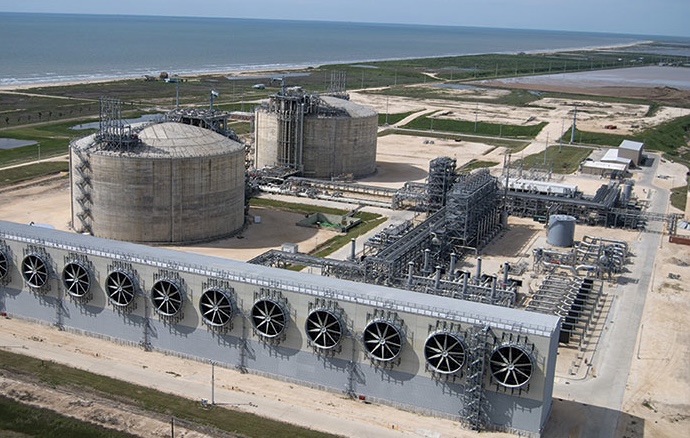Freeport LNG, a leading U.S. exporter of liquefied natural gas (LNG), is locked in a legal dispute with three contractors over faulty equipment installed at its massive Texas facility. The lawsuit, filed in April 2024, alleges that errors made by Zachry Industrial, Chiyoda International, and CB&I (a unit of McDermott) caused significant damage to electric motors at the plant, leading to costly repairs and production disruptions.
Faulty Equipment Blamed for Outages at Critical LNG Facility
The lawsuit focuses on problems with electric motors, the heart of the Freeport LNG facility’s operations in Quintana, Texas. This plant, with a production capacity exceeding 15 million metric tons of LNG annually, plays a vital role in the U.S. natural gas industry. Any disruption to its operations can have a domino effect, impacting domestic and international gas markets.
According to Freeport LNG, malfunctions identified in January 2024 stemmed from loose assembly hardware and excessively long cables installed by the contractors. These defects caused electrical shorts and other issues, leading to multiple outages and forcing the company to halt some operations. While the exact amount of damages sought in the lawsuit remains undisclosed, Freeport LNG confirmed it surpasses $1 million.
The Freeport LNG plant holds a special distinction as the first large-scale, electric-powered LNG facility in North America. Converted from an import facility roughly 15 years ago, it now relies on three powerful 75-megawatt motors from General Electric to run its operations.
The lawsuit against Zachry Industrial, Chiyoda International, and CB&I highlights the potential repercussions of errors during construction or installation phases of critical infrastructure projects. The outcome of this legal battle will be closely monitored by the energy industry, with implications for accountability and quality control measures in future LNG projects.
Freeport LNG Seeks Solutions Amid Legal Battle
While pursuing legal action, Freeport LNG faces the immediate challenge of ensuring smooth operations at its facility. Repairing the damaged equipment and potentially replacing faulty components are crucial to prevent further disruptions. The lawsuit’s resolution could also impact the timeline and budget for these repairs.
The Freeport LNG situation underscores the delicate balance between efficiency and cost-effectiveness in the LNG industry. While electric-powered facilities offer environmental advantages, any malfunctions can have significant consequences for production and market stability.
The lawsuit raises several questions. How will the legal battle impact the timeline for repairs at the Freeport LNG facility? Will the outcome set a precedent for future accountability measures in LNG projects? Additionally, the incident reignites discussions about the potential risks and rewards of electric-powered LNG facilities.
The Freeport LNG situation serves as a cautionary tale for the energy industry. It highlights the importance of stringent quality control measures during construction and the need for robust contingency plans to address potential equipment malfunctions at critical infrastructure projects. As the legal battle unfolds, industry stakeholders will be watching closely for its implications on accountability, operational efficiency, and the future of electric-powered LNG facilities.
Source: Reuters



